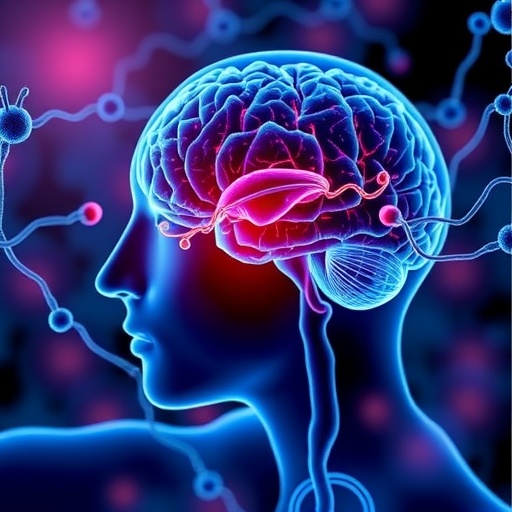In a groundbreaking development that could revolutionize the approach to neurodegenerative and mitochondrial diseases, researchers have identified a pivotal cellular mechanism governing energy balance and mitochondrial quality control. This discovery centers on phosphatase B55, specifically the PP2A-B55alpha complex, a molecular switch that meticulously regulates mitochondrial homeostasis within cells. The intricate balance maintained by PP2A-B55alpha orchestrates both the degradation of dysfunctional mitochondria and the synthesis of new organelles, ensuring cellular vitality and energy efficiency.
Mitochondria, the cell’s powerhouses, are indispensable for ATP production—the fundamental energy currency necessary for myriad biological processes. Their functional integrity is crucial not only for cell survival but also for preventing a spectrum of pathologies. Among these, Parkinson’s disease stands out due to its association with mitochondrial dysfunction, particularly in dopaminergic neurons. Similarly, rare mitochondrial disorders manifest through systemic failures affecting muscles, visual pathways, and neurological function, underscoring the universal importance of mitochondrial regulation.
The team, led by Professor Francesco Cecconi at Università Cattolica and Associate Professor Valentina Cianfanelli at Roma Tre University, conducted an extensive experimental study elucidating the dual role of PP2A-B55alpha. This phosphatase acts as a gatekeeper, stimulating mitophagy, the selective autophagic removal of damaged and potentially harmful mitochondria. Concurrently, it constrains mitochondrial biogenesis by stabilizing transcriptional coactivators that drive the generation of new mitochondria. This dual functionality empowers PP2A-B55alpha to preserve mitochondrial equilibrium, crucial for cellular homeostasis.
Central to this regulatory system is the interplay between PP2A-B55alpha and Parkin, an E3 ubiquitin ligase implicated in hereditary forms of Parkinson’s disease. Parkin facilitates the tagging and removal of defective mitochondria through mitophagy, a process vital for neuronal survival. The novel insight that PP2A-B55alpha modulates Parkin’s activity to balance mitochondrial turnover opens avenues for targeted therapeutic interventions aimed at restoring mitochondrial integrity in neurodegenerative conditions.
Utilizing Drosophila melanogaster models genetically engineered to recapitulate Parkinsonian motor deficits and mitochondrial anomalies, the researchers demonstrated that attenuating B55alpha activity significantly ameliorates motor dysfunction and normalizes mitochondrial morphology. These findings provide compelling evidence for PP2A-B55alpha as a modifier of disease phenotype, marking it as a promising pharmacological target for mitigating neuronal loss and functional decline.
The implications of these results extend beyond neurodegeneration. Given mitochondria’s fundamental role in energy metabolism and cellular signaling, aberrant mitochondrial regulation is a hallmark of diverse diseases, including mitochondrial myopathies and certain cancers. Tumor cells exploit mitochondrial plasticity to adapt to hypoxic environments and resist chemotherapy, highlighting the potential of PP2A-B55alpha modulation as a novel oncological strategy to disrupt cellular metabolism and enhance treatment efficacy.
Moving forward, the research consortium is poised to develop brain-penetrant small molecules capable of selectively modulating PP2A-B55alpha activity in dopaminergic neurons. The goal is to fine-tune mitochondrial turnover, counteracting mitochondrial loss and dysfunction while circumventing adverse effects associated with broad phosphatase inhibition. Such precision medicine approaches promise to transform the therapeutic landscape for patients suffering from currently intractable neurodegenerative and mitochondrial diseases.
Professor Cecconi emphasizes the necessity for rigorous preclinical validation, including the identification of compounds with high specificity, optimal pharmacokinetic profiles, and minimal toxicity. Additionally, translational studies will evaluate the impact of PP2A-B55alpha regulation across a spectrum of mitochondrial pathologies, aiming to harness its regulatory capacity for broad therapeutic benefit.
Beyond treatment, these findings enrich our understanding of mitochondrial dynamics and their integration with cellular signaling pathways governing survival, apoptosis, and metabolic adaptation. This knowledge paves the way for future inquiries into the molecular crosstalk between phosphatases, ubiquitin ligases, and mitochondrial biogenesis factors, fostering a holistic view of mitochondrial quality control mechanisms.
The publication of this research in Science Advances marks a significant advance in cellular bioenergetics and disease biology. It underscores the power of multidisciplinary collaboration and innovative experimental paradigms in unraveling complex biological processes with direct clinical relevance. As the scientific community embraces these insights, the prospect of durable, mitochondria-centric therapies comes closer to reality.
In conclusion, the discovery of PP2A-B55alpha’s master regulatory role offers a new beacon of hope for millions affected by Parkinson’s disease and other mitochondrial disorders. By delicately balancing the generation and removal of mitochondria, this molecular switch safeguards neuronal function and cell survival, illuminating a promising path towards effective, disease-modifying interventions.
Subject of Research: Animals
Article Title: The PP2A-B55a phosphatase is a master regulator of mitochondrial degradation and biogenesis
News Publication Date: 3-Oct-2025
Keywords: Human health, Mitochondrial homeostasis, Parkinson’s disease, Mitophagy, PP2A-B55alpha, Neurodegeneration, Mitochondrial biogenesis, Cellular energy balance, Parkin protein, Mitochondrial diseases, Experimental study




